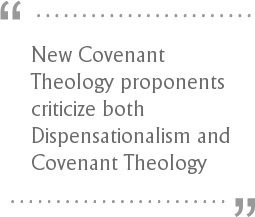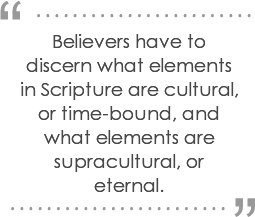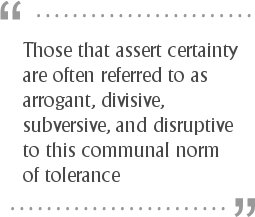Answering the 95 Theses Against Dispensationalism, Part 10
 Republished with permission from Dr. Reluctant. In this series, Dr. Henebury responds to a collection of criticisms of dispensationalism entitled “95 Theses against Dispensationalism” written by a group called “The Nicene Council.” Read the series so far.
Republished with permission from Dr. Reluctant. In this series, Dr. Henebury responds to a collection of criticisms of dispensationalism entitled “95 Theses against Dispensationalism” written by a group called “The Nicene Council.” Read the series so far.
Thesis 46
Contrary to dispensationalism’s claim that “the Church is a mystery, unrevealed in the Old Testament” (J. D. Pentecost), the New Testament writers look to the Old Testament for its divine purpose and role in the history of redemption and declare only that the mystery was not known “to the sons of men” at large, and was not known to the same degree “as” it is now revealed to all men in the New Testament (Eph 3:4-6), even noting that it fulfills Old Testament prophecy (Hos 1:10 / Rom 9:22-26), including even the beginning of the new covenant phase of the Church (Joel 2:28-32 / Acts 2:16-19).
Response: First, one does not have to be a dispensationalist to hold that the mystery of the Church as the Body of Christ was not known in OT times (see Bruce, O’Brien, Barth). The adverbial conjunction “as” in Ephesians 3:5 is best seen in a descriptive sense asserting the difference in kind which the mystery discloses, rather than a restrictive way whereby more is known now than was known before. Paul is speaking here of the entity which is the Church. The Church is the Body of Christ which is entered into through the Baptism of the Spirit (1 Cor. 12:13). According to Acts 1:5 (cf. John 7:39) this baptism began at Pentecost. It is this new revelation of the Body of Christ which it is crucial to keep in mind since it is just not found in the OT. Further, the mystery was covered up, “hidden,” or “not made known” (3:5), but is now revealed. This surely supports the descriptive sense! It wasn’t half covered up!
Colossians 1:26, which is more emphatic, again refers to that which “was hidden from ages…but now has been revealed.” So there is a strong case against the view that Paul is talking about the amount or “degree” of the mystery that was known prior to the NT. Paul is rather saying that the Church was completely unknown.
 Reprinted with permission from
Reprinted with permission from 
 Reprinted with permission from
Reprinted with permission from  Republished with permission from
Republished with permission from 
Discussion